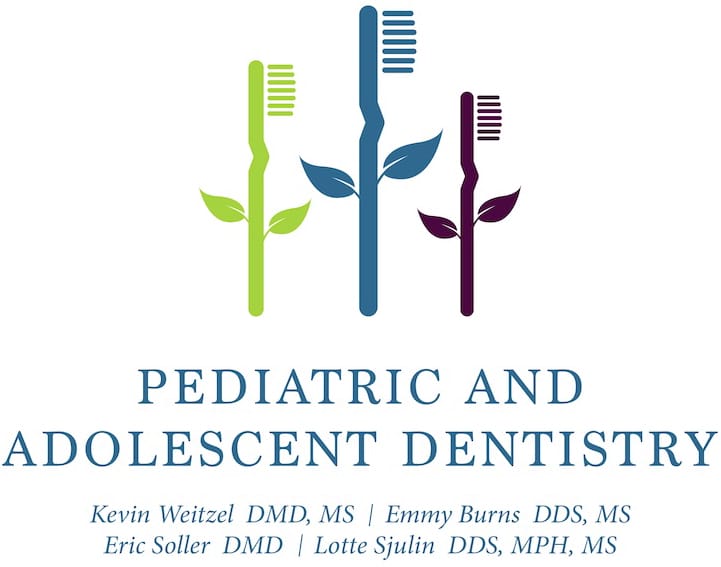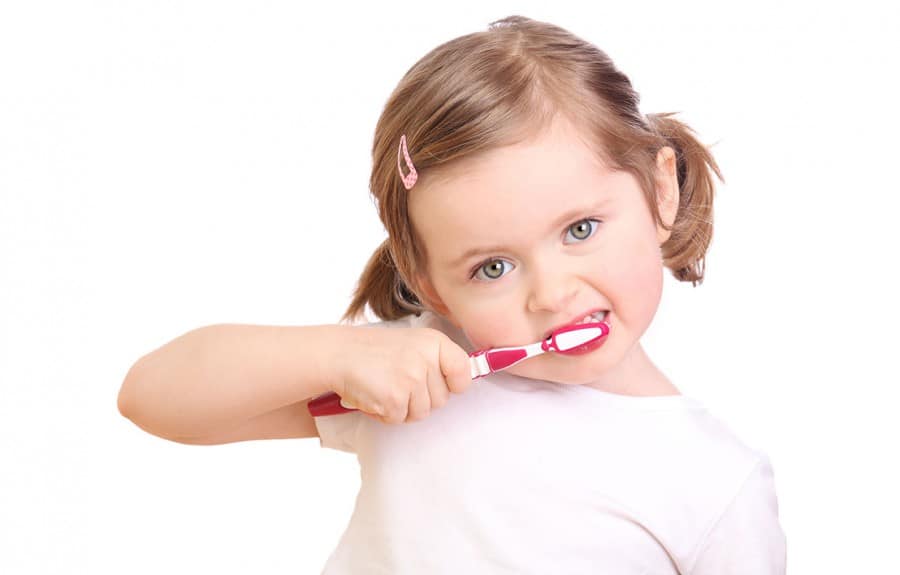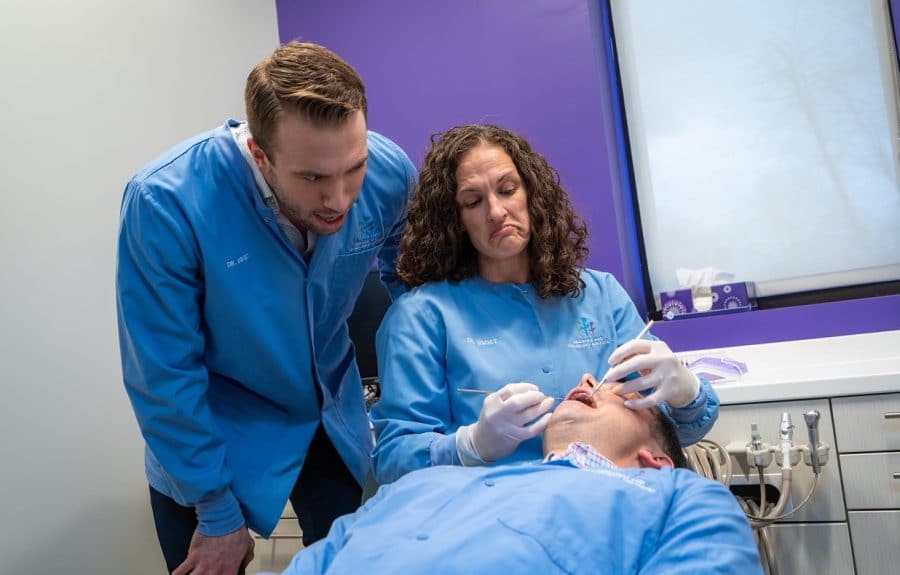Your child should have approximately eight erupted front teeth by one year of age. Also, sixteen of the permanent teeth will have begun to calcify by one year and by age two, four more permanent teeth will calcify. Most children will have sixteen erupted primary teeth by age two.
Your twelve to eighteen month old child should be examined by a pediatric dentist and your role in preventing future problems should be discussed.
Tooth brushing should begin during this time and can best be accomplished by laying your child on the changing table while you brush. After eighteen months, a small amount of fluoride toothpaste on a soft toothbrush will enhance prevention. Brushing should always be done by the parents at bedtime as a child should not go to bed with even small amounts of food or drink in his mouth. The teeth should also be well cleaned after breakfast. While cleaning a child’s teeth, special attention should be paid to cleaning the gingival margins (gum line).
As your child becomes more active, bumps to the teeth are inevitable. If there is any question as to damage to the teeth your child should be examined by the dentist as soon as possible.







